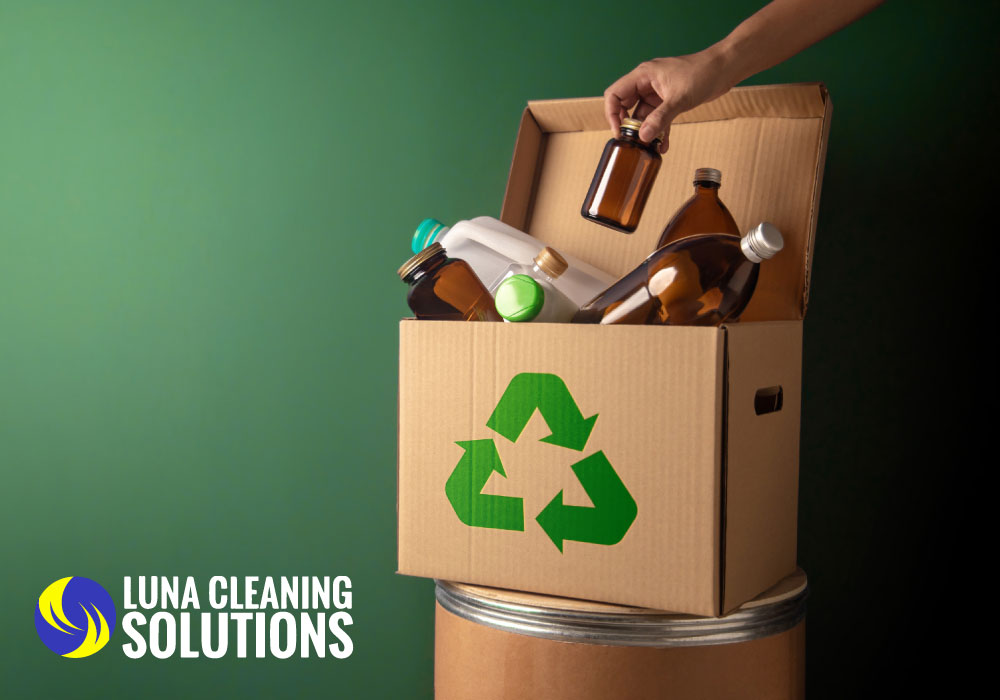Understanding Recycling Legislation: A Path to a Sustainable Future
In an era where the global climate crisis poses an unprecedented threat to our way of life, recycling legislation has become one of the most effective tools to safeguard the environment. As governments across the globe embrace stricter recycling regulations, businesses and individuals must prioritise recycling as a key practice in reducing harmful waste and conserving vital resources. The upcoming changes, such as the 2025 Simpler Recycling legislation, underscore the essential role recycling will play in shaping a more sustainable future.
The Importance of Recycling Legislation
As Seton eloquently highlights, “the global climate crisis is more of a threat to our way of life than it has ever been,” yet recycling remains one of the most impactful ways to address these environmental challenges. Recycling legislation aims to reduce waste, encourage the reprocessing of materials, and create a circular economy where resources are reused, not discarded. These laws are crucial for reducing greenhouse gas emissions, conserving natural resources, and easing the strain on overflowing landfills.
One of the major advantages of recycling legislation is its ability to establish clear guidelines for waste separation. Effective recycling practices require a clear understanding of which materials can be recycled and how to sort them properly. Signage, like that promoted by Seton, provides vital information to help businesses and individuals recycle effectively and reduce contamination, ultimately leading to more efficient waste management.
The 2025 Simpler Recycling Legislation
The Simpler Recycling legislation, set to take effect in March 2025, represents a pivotal change in recycling regulations, mandating that all non-household municipal premises (with the exception of micro-firms) implement comprehensive recycling processes. This new regulation requires businesses to separate recyclable materials such as glass, plastic, paper, and cardboard, as well as ensure food waste is stored and collected separately.
This legislation also encourages proper waste sorting, allowing businesses to mix dry recyclables while keeping non-recyclable waste clearly separated. Safe storage and labelling of hazardous waste is also emphasised to minimise environmental harm. In line with these regulations, plastic film collection will be introduced in 2027, further extending the scope of materials that can be recycled.
Non-compliance with these regulations may result in penalties, which underscores the importance for businesses to take recycling seriously. By enforcing such laws, the government aims to standardise recycling across industries and significantly reduce waste sent to landfills.
The Role of Recycling Legislation in Business
For businesses, adhering to recycling legislation is more than just a legal requirement; it’s a commitment to sustainability. Companies that integrate recycling into their operations demonstrate environmental responsibility, enhancing their reputation with eco-conscious consumers and partners. Not only does recycle reduce disposal costs, but it also allows businesses to recover valuable materials that can be reused, driving both financial and environmental benefits.
By ensuring waste streams are properly separated, companies also avoid the risk of contaminating recyclables, which often leads to entire batches of recycling being discarded. Seton’s solutions, such as clear signage and recycling bins, can streamline the recycling process, making compliance simpler and more effective.
Moreover, for businesses looking to act with greater environmental responsibility, partnering with a company like Luna Cleaning Solutions can make a significant difference. Get a cleaning service with an environmentally responsible company like Luna Cleaning Solutions—we ensure that sustainability is at the forefront of our services.
Looking Ahead: The Future of Recycling Legislation
As we move closer to 2025, the need for more stringent recycling legislation will continue to grow. Future regulations may focus on incorporating more materials into recycling streams and increasing accountability for businesses that fail to comply. The introduction of plastic film recycling in 2027 signals that recycling laws will evolve further to encompass a broader range of waste materials.
In conclusion, recycling legislation is pivotal in the fight against environmental degradation. These laws help build a future where resources are managed more responsibly, reducing waste and protecting the planet. As Seton urges, “Make recycling your business”—whether by following new regulations or taking proactive steps towards sustainability, now is the time to act. With the right partners, like Luna Cleaning Solutions, businesses can lead the way in creating a cleaner, greener future.
References: Seton. “Make recycling your business.” Seton Legislation Watch.

